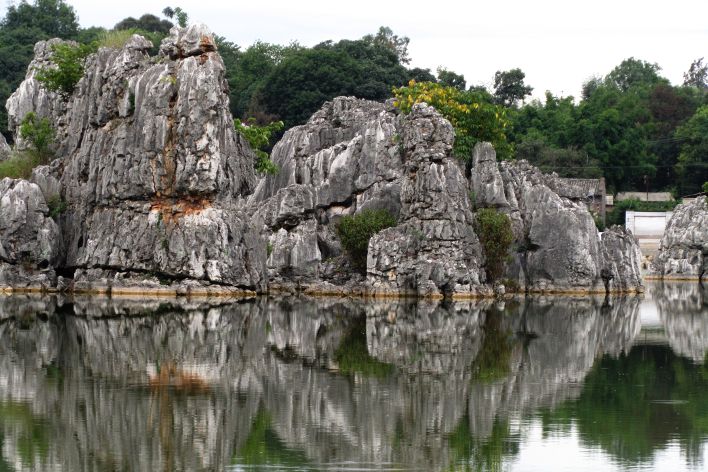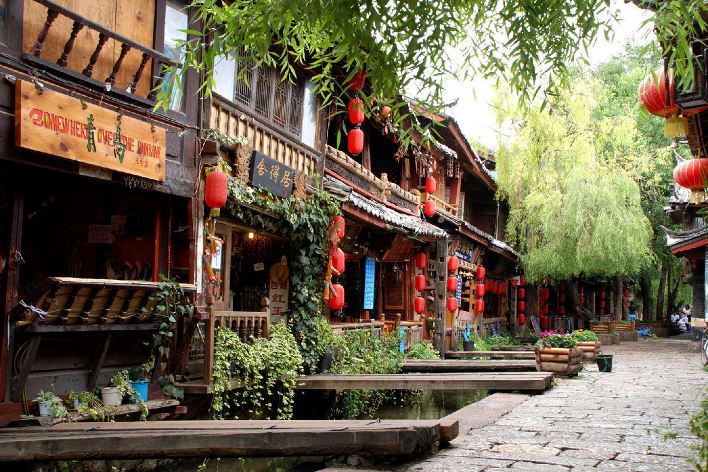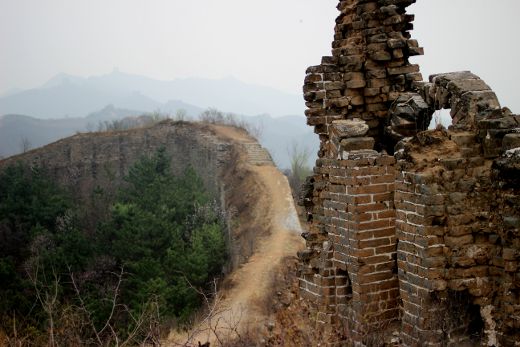
China’s Fake Markets – Index
What are the Chinese fake markets?
The first time that I went to China, right after leaving one of my friends told me:
“Don’t come back to Italy without checking out at least one of the fake markets in Beijing.”
Fake market? What did that mean?
I never heard of them, and didn’t know of the existence of this parallel world until one day, at the end of my lessons at the Beijing Language and Culture University, with one of my colleagues I headed toward one of the most famous fake markets in Beijing, the Silk Market (秀水街, Xiushui Jie, in Chinese), in the Chaoyang district.
It was one of the most enjoyable experiences of my first trip to China. After weeks of frustration in university, finally a little shopping and entertainment.
The Silk Street Market is an actual building of fakes, each floor with specific products, from shoes to clothing, to electronics and toys, to perfume to accessories for the home. A shopping mall from which it is impossible to leave without making at least one purchase among the thousands of articles offered.
Once inside, you’ll be fascinated and even a little perplexed since you’ll ask yourself how all this is possible. But right afterwards you too won’t be able to help but wander around in search of “bargains”.
Rules to not get ripped off at the fake market
In the Chinese fake market you can find everything, but here are a few rules to avoid coming home to find out you’ve been “ripped off”.
First rule: prices and the art of haggling
The first rule of these markets is: HAGGLE; the Chinese love to haggle, and once inside, you’ll find that all the linguistic difficulties you had just days before, magically disappear.
As an expert in the art of haggling, the merchants of various stores will try at the outset to offer prices that although seemingly reasonable to the eyes of a Westerner, can actually be bargained down since the first price is usually five to ten times more than the final one.
Here are some basic fundamentals for bargaining at fake markets:
- Smile, keep calm, and don’t feel guilty about wanting to haggle. Here, if you don’t haggle you’re considered an idiot;
- If you already know the type of product you want to buy, get an idea of the actual price on Taobao before going to the market, so that you’ll have a base price;
- As was already said, the initial price offered by the vendors in the fake markets are – usually, – five or ten times more than the “final” price. So if the initial price is 100 Yuan, you respond with 10. If the vendor tells you to take a hike (it can happen if you offer a price that too low even for them), try with another (there are usually many vendors selling the same product) and begin from 20. The vendor will offer 90, you 21, etc;
- Halfway through the transaction, pretend to walk away. If the vendor hasn’t yet reached their final price (or the price beyond which they’re not inclined to go so as not to take a loss) they’ll try to keep you from going;
- Bargain with other vendors to find out what is the lowest price they’re willing to go (as I already said, there are many stands that offer the same product);
- Tell them that they can’t cheat you because you live in China and know the prices;
- At the end of the day, if you’re a Westerner, in many cases you won’t get the best possible price since many merchants would rather lose a sale than have their final price become known to tourists. The only way to “resolve” this problem, if price is important to you, is to get your Chinese friend to go in your place. However this will make you miss out on all the fun!
Second rule: pay attention to the quality
Inside the market you’ll find differing qualities for every product; although they’re all imitations, often the first product that they’ll offer you will be of low quality and/or defective (such as a shirt with markings or holes).
Third rule: always pay using the local currency
Always pay using Chinese Yuan. Even though all types of currencies are accepted in this type of market, the prices offered in Yuan will always be better than in Euros or Dollars; so I recommend that you only use Yuan.
Another bit of advice is to avoid using credit cards since quite often, especially in the past, many have found that their card has been cloned.
Fourth rule: don’t follow vendors to an isolated place
At times vendors will say something like:
“I don’t have this in that color here (or this size, etc), follow me for a second and I’ll get it for you.”
Even though it is possible that the request is genuine, it is also possible that following the vendor into his store you’ll find yourself in front of two hooligans that will relieve you of your wallet.
China, in general, is not at all a dangerous place, but the rules of common sense still apply!
Where to find fake markets in Beijing?
Fake markets aren’t present in all of China, because being an exclusively tourist attraction they are concentrated especially in the cities of Beijing and Shanghai.
As far as Beijing goes, the most visited one with the widest variety of products is the Silk Street Market (秀水街, Xiushui Jie) located at 8 Xiushui East Street, in the Chaoyang district.
To get there, take Line 1 of the metro to the Yonganli stop and follow the signs for the Silk Market (exit A).
This is the third tourist attraction in Beijing and was opened at the beginning of the Eighties and today is host to more than a thousand vendors inside.
After the conversion of the Ya Show of San Li Tun to the fake market shopping center, the second most famous fake market in Beijing is probably the Pearl Market (红桥市场, Hongqiao Shichang), located at 46 Tiantan East Street.
To get there, take Line 5 of the metro to the Tiantan Dongmen stop and take exit B.
This market is visited by more than a million tourists a year. Unlike the other merchants, this one also specializes in the sale of pearls: pearl merchants are found on the third, fourth and fifth floor of the building.
Besides clothing, shoes, electronics, watches and silk, at this market you can also buy food, especially fish, from frutti di mare to the most valuable ones.
Where to find fake markets in Shanghai?
In Shanghai the situation is more or less the same: the same products, same quality, almost the same prices (in my opinion the prices are a little higher in Shanghai).
Just as in Beijing, a tourist in Shanghai should include on their list of attractions to see at least one of the large markets in Shanghai.
The first is the Pudong Market (浦东亚太新阳市场 , Pudong Yatai Xinyang), located at 2002 Shiji Dadao, in the Pudong Xin district.
To get there take Line 2 of the metro to the Shanghai Science and Technology Museum stop. The market is located inside the station itself.
If you want to go by taxi, the easiest thing to do is have the driver leave you in the square alongside the entrance of the metro, asking in fact to be dropped off at the Shanghai Science and Tecnology Museum station (in Chinese: 科技馆地铁站, Kejiguan Ditie Zhan).
The second market I’d recommend is the Fenshine Market (风向市场, Fengxiang Shichang) at 580 Nanjing West Road [Update: At the moment this market is close], at the intersection with Chengdu Road. This market is more centrally located than the first and can be reached by foot in about fifteen minutes from the Nanjing West Road metro stop (line 2), or on foot for fifteen minutes from the stop at People’s Square, exit 11 (line 1, 2 and 8).
Here you might find vendors who will ask you to go to the “higher floors of the building”: don’t worry! That’s where you’ll find the best quality merchandise, the kind most appealing to we Westerners.
Regardless of which market you decide to visit depending on budget and availability, in my opinion this is one of the experiences you have to do at least once in your life: first of all you’ll have a good time, whether in the end you decide to buy a bag or just a magnet; after which you can also discover a different world, a different China that isn’t possible to find in any other place.
And trust me, once you enter, you surely won’t be disappointed.
So, what are you waiting for?
Frequently asked questions
You can buy electronics as well, but personally I prefer to do so in Hong Kong instead. There’s no import taxes and you can buy genuine products at a lower price.
Shirts can cost everything between 120 RMB – 500 RMB, from my experience. If you go to a decent tailor at Nan Pu Da Qiao in Shanghai, for example, you shouldn’t pay more than 200 RMB for a cotton shirt of normal quality.
Some other places you should check out are the Taihua market(泰华) and Xinzhongxin(新中心). Here, you’ll find much clothes, shoes, handbags, and more. It’s similar to the Silk market in Beijing.
Bio
This article was written by Federica Urso, who studied Chinese both in Beijing and Chongqing.
Photo Credits: ![]() Shopping at Hongqiao Pearl Market by Sidne Ward
Shopping at Hongqiao Pearl Market by Sidne Ward




Where can i find the branded replica ladies bags?
are there any fake markets in Zhengzhou?
Probably yes
I worked in Beijing some years ago – now back in Germany.
During my time in Beijing I ckecked out all kind of fake markets.
Best expierence was to go to so called “Hidden fake markets”.
Those shops that are usually near to the big fake markets . They are not marked as shops from outside. Inside you can find a lot different fake stuff – normally with a lot better quality then the stuff from Silk Market or Pearl Market. Normally the prices are fix – you can not bargain. But the prices are realistic – no stupid fake prices like the prices from Silk Market or Pearl Market.
Where you can find the hidden shops is a secret. I found nothing about that in the internet but most of the Airline Crew Members know about these shops. Everytime I was in one of those shops I saw some Airline crew members shopping there too.
I still know some of these shops for watches, bags, eyeware, shoes, clothing, electronic…. in Beijing
If you are interested drop me a private message: [email protected]
580 closed a couple years back and will never re-open. And 360 market up near the railway station (which was not mentioned above) also kicked the knock-off vendors out of its basement floor. Those from 580 and 360 moved into Science & Tech around 2017. 360 does still have quite a few vendors in its upper floors for electronics, eyeglasses, etc. So Science & Tech is basically the main source in Shanghai now. One last location…South Bund Fabric Market….quite a few tailors (it’s where I have my dress shirts and cashmere coats made) and no shortage of knock-off clothing.
Thank you for the update
Hi, any fake market in Xi’an?
Sorry, we don’t know any market in Xi’an
great advice, any suggestions for Shenzhen ?
We don’t have any first hand advice for Shenzhen, just google it, somebody probably wrote about specific fake markets in Shenzhen; all our advices still apply : )